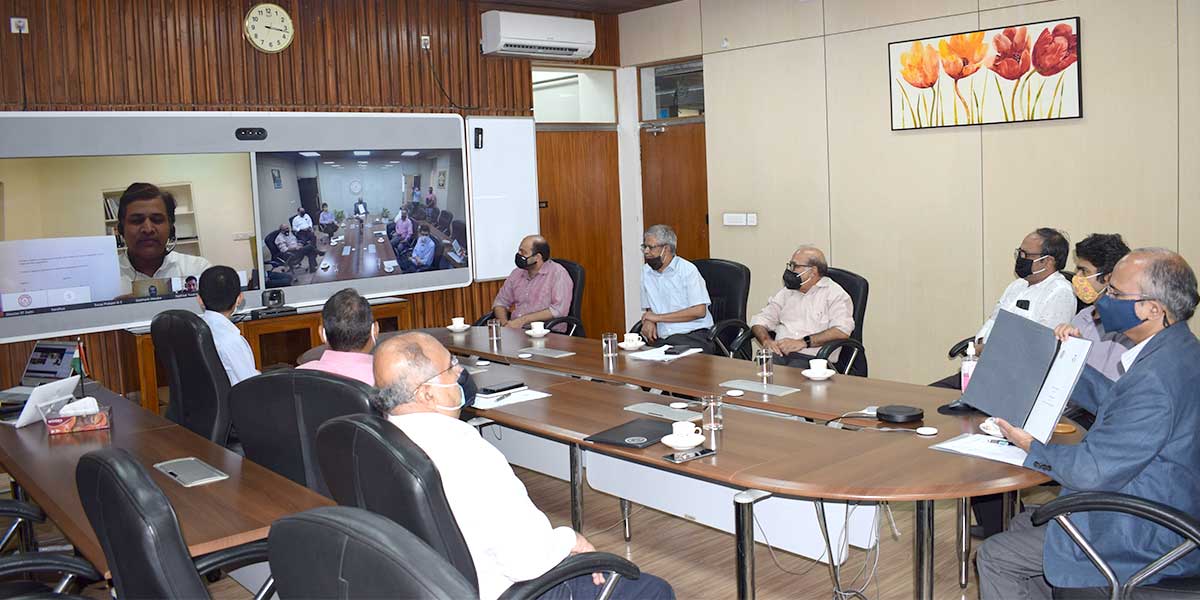Center on Daksh
Centers@iitd

The DAKSH Centre of Excellence (CoE) for Law and Technology was set up in October 2020 through an MoU between IIT Delhi and the DAKSH Society, Bengaluru.
The objective of the Center is to conduct inter-disciplinary research on various aspects of the justice system and build solutions drawing from various fields such as operations research, data analytics, technology and law, and convene various stakeholders such as the judiciary, government and industry for mutual exchange of ideas.
In an interview with Dr Vanita Srivastava, the coordinator of the Center Prof Nomesh Bolia speaks about the objectives of the Center, the current focus and the long term vision.
What are some of the fundamental objectives of the Centre?
This is a one of its kind Center established in the nation that is working at the intersection of law and technology. We aim to use technology and data for prescriptive and predictive analytics related to problems in the law and justice space.
The broader objective is to analyse the data to build solutions of the most pressing problems of the legal ecosystem. We have the judiciary, government and the industry as our stakeholders. The data can be analysed for specific cases. To cite some examples, there are many cases of bounced cheques, that triggers a clogging of the system. We can map through the data and use that intelligence to help in easing the problems of bounced cheques. We also propose to develop a community of practice.
How was the Center concretized? What is the background of the people working at the Center?
DAKSH Society is a Bengaluru based think tank is doing pioneering research with regards to the functioning of the judiciary system in partnership with different stakeholders including judiciary and government. It was founded in 2008 by people from diverse backgrounds, including academicians, entrepreneurs, lawyers, teachers, social and political activists, and ordinary citizens.
In 2016, as part of the Faculty Interdisciplinary Research Project (FIRP), I applied for a project along with Prof Mausam from the department of Computer Science. This project served as a starting point for the journey of this CoE. We were introduced to DAKSH at a meeting convened by Justice Madan Lokur, the then Chairman, e-committee of the Supreme Court. In 2019 DAKSH approached us to set this Centre at IITD. The idea was to converge the technical expertise of IIT Delhi and the domain expertise and access of DAKSH. The Center was formally set up in October 2020. It has an expertise in a wide spectrum of areas such as Operations Research, Natural Language Processing, Economics and more.
What is the Center currently focussing on. What is the long term vision?
TAt present we have invited proposals for research projects and are following up on some specific projects that have emerged from the current needs of the sector. We also plan to have roundtables, stakeholders meets and outreach to the judiciary, government, academic institutes and the industry for relevant collaboration and solutioning.
Our long term vision is to pragmatically use operations research, data analytics and relevant technology to improve the performance of the legal system-- for example, delay and pendency management. We propose to carry out interdisciplinary research on various aspects of the judicial system. In a nutshell, the Centre aims to bring together lawyers, researchers, scientists and policy analysts to map solutions for some of the major challenges in the judicial landscape.
Why is such kind of platform needed for India ?
India is a democratic country. Pendency and delays have been acknowledged to be a major challenge that needs to be addressed, both for justice and development. The centre can serve as a platform where various stakeholders can share thoughts and collaborate. Our research and data based studies can help in addressing several problems in this direction: from predicting the results and duration of the cases to inputs on removing bottlenecks and performance optimization and management in the judiciary. These kind of platforms can add significant value to the law and justice space in India.

